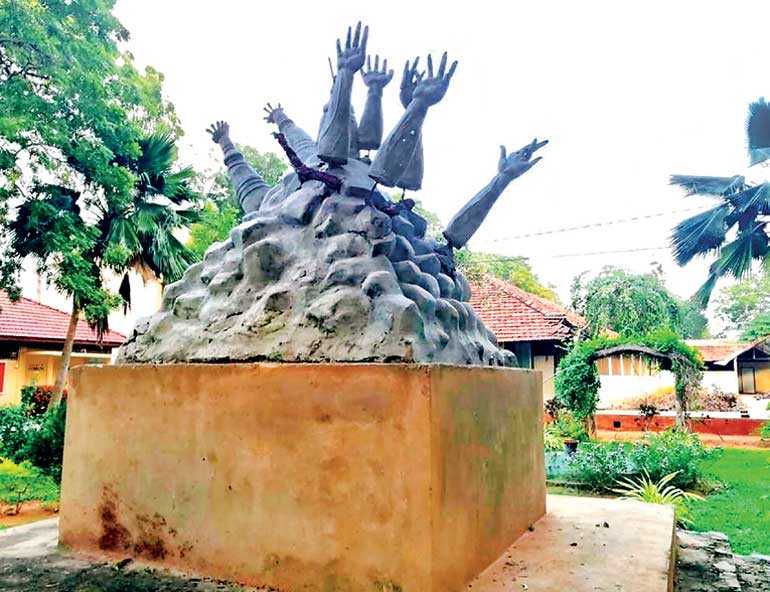Monday Feb 16, 2026
Monday Feb 16, 2026
Tuesday, 26 January 2021 00:51 - - {{hitsCtrl.values.hits}}

The monument that was destroyed by the university authorities was the only public monument to Tamil civilians who perished in the last stages of the war
By National Peace Council
The issue of remembering the past has been a source of division within the country.
The destruction of a memorial within the premises of the University of Jaffna in early January threatened to escalate to serious conflict. However, immediate remedial action taken by the Vice Chancellor of the university helped to defuse the situation created by this action. He apologised for what had happened and laid a foundation stone for the reconstruction of the monument.
The monument that was destroyed by the university authorities was the only public monument to those Tamil civilians who perished in the last stages of the war. The damage that has been done needs to be repaired as soon as possible without permitting the politicisation of the issue.
In the absence of pro-active and constructive actions those with partisan motivations are likely to take the on positions of contestation that exacerbate wounds rather than heal them. There is a need to rebuild the monument, sooner rather than later, and in a manner that heals rather than further inflames the hearts and minds of people.
The National Peace Council proposes that the Vice Chancellor should take the lead in a process of consultations with the university community including the student body, faculty and non-academic staff and community leaders in Jaffna.
This incident highlights the need to be cautious in dealing with issues that linked to emotions; a little more patience and consideration and consultation may have avoided the escalation of this issue. Our hope is that such a process will lead to a memorial, and an outcome, that has broad social acceptance and be a model for other memorials that heal rather than divide.
The National Peace Council is an independent and non-partisan organisation that works towards a negotiated political solution to the ethnic conflict in Sri Lanka. It has a vision of a peaceful and prosperous Sri Lanka in which the freedom, human rights and democratic rights of all the communities are respected.
The policy of the National Peace Council is determined by its Governing Council of 20 members who are drawn from diverse walks of life and belong to all the main ethnic and religious communities in the country.